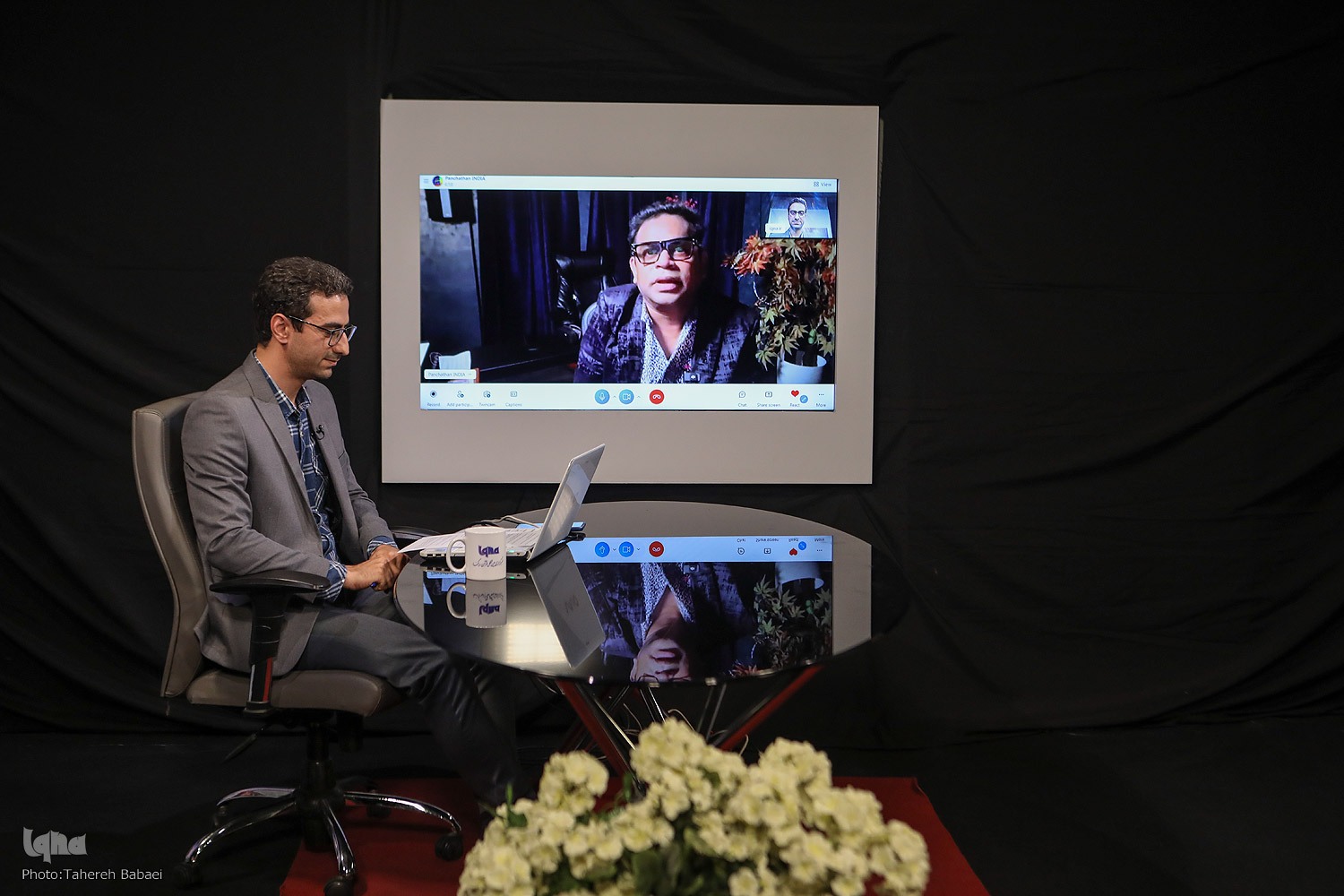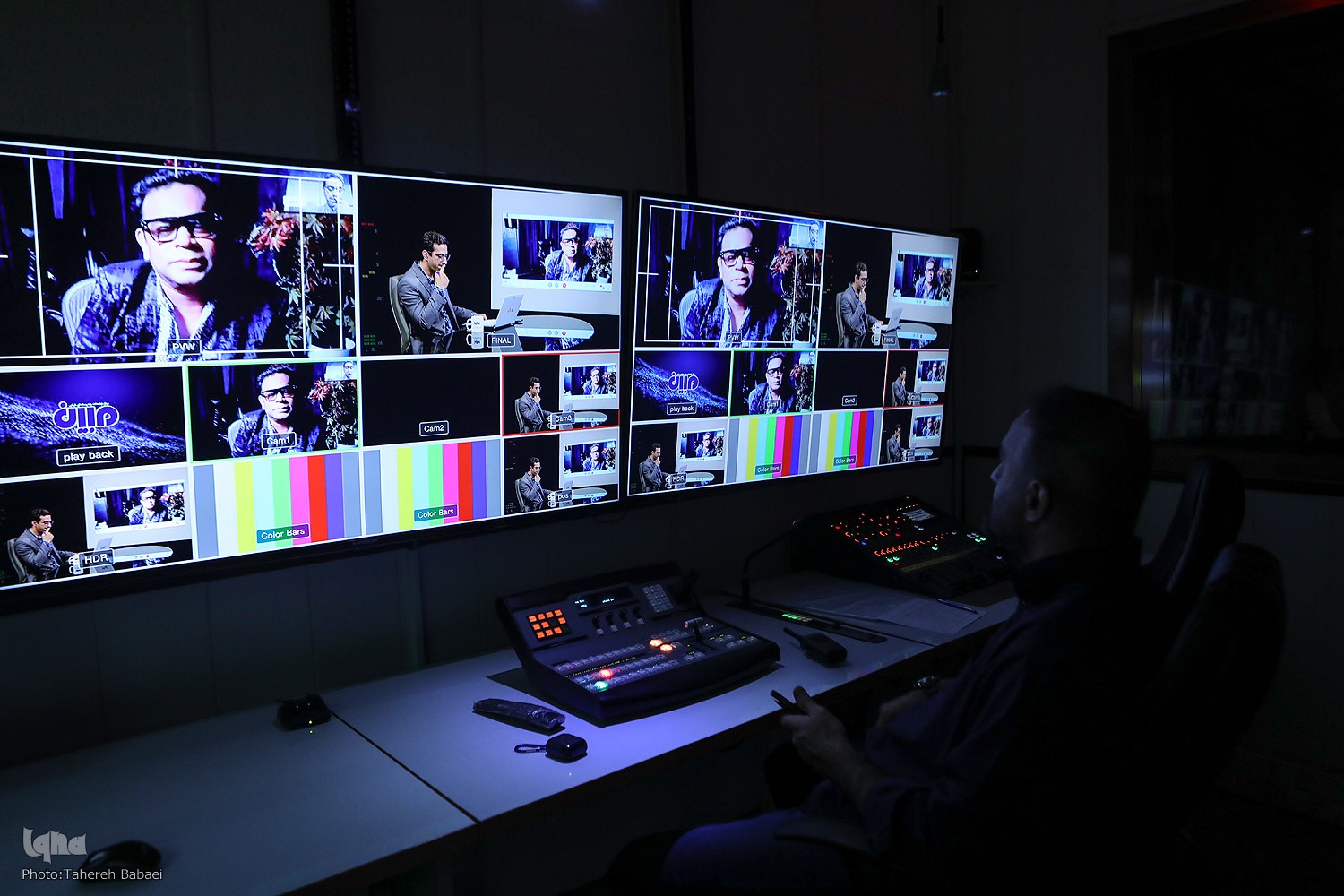Academy Award Winner A. R. Rahman Says 'Great Honor' to Work on Movie about Holy Prophet

The acclaimed Indian composer worked with Iranian director Majid Majidi to write the soundtrack for his movie, Muhammad: The Messenger of God. The movie was released in 2015, becoming the second movie produced on the life of Prophet Muhammad (PBUH) after Mustafa Akkad’s The Message in 1976.
On the occasion of the Holy Prophet’s (PBUH) birthday, IQNA had a conversation with A. R. Rahman about this movie and also the love for the Holy Prophet.
A. R. Rahman is an acclaimed Indian composer, singer, and songwriter known for his work in Tamil and Hindi films, as well as international productions. He has won numerous awards, including two Academy Awards for his work on the film "Slumdog Millionaire" (2008)—one for Best Original Score and another for Best Original Song for "Jai Ho."
Rahman has also received a Golden Globe and a BAFTA Award for the same film. His innovative music blends classical, electronic, and world music elements, earning him global recognition and numerous accolades.
What follows is the full text of the conversation:
IQNA: What inspired you to work on the soundtrack for Muhammad: The Messenger of God?
Rahman: I got a call from a friend who said that Mr. Majidi wants to meet me. And back in India, I think Majid is a very celebrated director his movie Children of Heaven is a cult movie that opened up people's sensibilities towards world cinema, especially from Iran.
So I wanted to meet and wanted to know more about it, and when I met him and when I knew that he was doing the movie on the Prophet (PBUH), I was very happy, and I thought it was a great honor.
IQNA: How did you approach the task of composing music for a film with such profound historical and religious significance?
Rahman: I was also following a little bit about Arabic music—and I've expanded my sensibilities over the past 40 years—some of the maqams and what rhythms they use, and also the poetry. There is a sense of deep-rooted culture. And at the same time, Majidi’s intention was to give this movie to the world, not just for Iran, Saudi Arabia, or India; it is for the world for everybody to see it. As he said, there are so many movies made on Prophet Isa (AS) but The Message is the only movie on Prophet Muhammad.
IQNA: Did you face any particular challenge when working on this project?
Rahman: The only challenge was that Majidi does not speak English. He only speaks cinema and art. So we were working very different ways. So we took some time in kind of being in the same vibration, but then once I knew exactly how to present to them because sometimes you know you play a melody on the piano or oud and in the communication, he expected the full orchestra to hear something big. Then one day, what happened in Munich I played him a lot of different music and then I understood what taste he wanted.
I know that his intention was very noble; he wanted to spread the message of peace and the wisdom of the Prophet to the world.
IQNA: I was wondering whether you had seen the movie and then written the soundtrack.
Rahman: I was there while shooting a little bit. I was there for a couple of days. So I kind of felt the energy and what they were trying to do. And Majidi at the time showed me a lot of rushes. He had it on Blu-ray, and he kept showing it to me.
IQNA: Were there any specific musical influences or traditions that you drew upon for this soundtrack?
Rahman: It's basically an orchestral soundtrack with Arabic elements in it. Some of them have this huge choir, like when the village where the fish is coming from the sea, and their idea is to show the miracle that happened. And when the camel comes to Amina's house, he [Majidi] wanted the camel like an angel that leads Halima to Amina.
So that is a very new take, and it was beautiful when he explained it. He had many different things that he wished the music had to do; which the film has something and the music had to do something else, and he guided us very beautifully.

IQNA: You mentioned the choir; I was wondering what was the main theme and basis of the choir.
Rahman: The choir actually says the Salawat (صل الله علیه سیدنا و مولانا) so because in the movie music you need to create impact and it needs to be felt and we can't use anything else other than Salawat and it is the Prophet’s movie.
IQNA: How much did you pay attention to the Arab musical tradition, which is based on maqams? A music expert that I talked to before this conversation said that he could feel the Eastern or Indian elements in this soundtrack. What is your take on this?
Rahman: Yeah, I think the Prophet belongs to everybody, and so in a way, I think bringing in all the elements gets to be more friendlier to everyone, not alienate them. If you take the last Hajj, which happens that has [singing] it is in between Arabic and Indian.
IQNA: Before Majidi’s film, the only movie about the Holy Prophet (PBUH) was The Message by Mustafa Akkad and the music was composed by Maurice Jarre. Did you make any effort to draw inspiration from that work or you just tried to create a completely different soundtrack?
Rahman: Yeah, I love the music of Maurice Jarre and what he did. But I think in this, we needed Arabic instruments like oud and Armenian duduk and ney and all the stuff. And so no, we didn't take any melodies or anything from that movie this is a completely different take.
IQNA: Since it is nearly a decade since the release of the movie, how do you assess the success of the movie itself and the soundtrack?
Rahman: A movie like this plays with a lot of emotions. The intention is very pure, and all that the makers want the story to reach more people so it will create a bridge, they will know more about our Prophet, more about the culture, more about the humanity, more about the deep-rooted love.
But unfortunately, as usual, there is so much of divide in the world. It (the movie) came to YouTube in Urdu and many other channels when it was released. People were shocked; some people are against (the movie, saying) those are not the right thing, and all those things happened.
But I think something done with good intention always comes to surface, and now you can see that people are watching it, not in legal channels; it's not on Netflix; it's not only legal channels but on YouTube, and people are loving it, I think.
And even they putting reels from some of the scenes from the movie.
I had predicted that in half ten years, it will have its life better than when it's released because all the judgmentalism will go and people look at it from a bigger perspective.
IQNA: What was the main message or emotion that you tried to convey with the soundtrack?
Rahman: I think on the whole it's all about love. And if you look at every melody, there is a love in smaller and bigger proportions. And the Prophet is about love. And so every bit of it, except for the pagan war, where the war happens in the beginning with the elephants and all that stuff it's more tribal but post that every bit has got so much of love.
IQNA: As you are also an expert in the Qawwali style, how do you approach the spiritual and emotional aspects of performing songs dedicated to Prophet Muhammad (PBUH)? What emotions do you experience the most when performing them?
Rahman: I think personally what I feel is it is like a mirror of a thousand mirrors. You see one face and it reflects a thousand or even more infinite light up on you. So anything given on the Prophet, Salawat, Durood Sharif, Fatiha or everything only reflects to you and people around you. It is always like a blessing to sit and sing qawwali. And It is “Ibadah” for me; just like when you're walking you're saying Salawat or sitting in a car you're saying Salawat inside of our sitting in front of the keyboard you're saying Salawat. And singing the songs of the Prophet (S) is Ibadah for us.
Interview by Mohammad Ali Haqshenas



